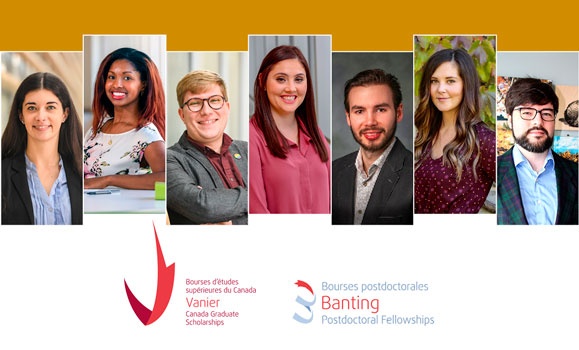Today, the Honourable Kirsty Duncan, Canada’s Minister of Science and Sport, announced the winners of the federal government’s most prized awards for PhD students and postdoctoral fellows: the 2018-19 Vanier Canada Graduate Scholarships and Banting Postdoctoral Fellowships.
Among the ranks of high achieving beneficiaries were five Ģą˝AV PhD students and two postdocs selected for the potential impact of their research, academic excellence and leadership abilities. The award winners are exploring areas as diverse as renewable energy, the role of dating apps in sexualized violence, discrimination in health care, the next generation of planet-friendly chemicals, sexual well-being, and intellectual accountability.
“It’s huge honour to be selected for the award. It’s exciting. It’s also a relief,” said Landon Getz, a PhD student in cellular and molecular biology studying infectious bacteria. “It means that I can focus on my studies, which will make the research I do better because I won’t be distracted by other demands.”
Vanier Scholars receive $50,000 per year for three years during their doctoral studies. Banting Fellows receive $70,000 per year over two years. The funding also helps faculty members who can use funds originally intended for the students to reinvest in their research programs.
“I’m delighted to see so many of our graduate students and postdocs among the winners of these prestigious awards,” said Marty Leonard, dean of the Faculty of Graduate Studies. “Graduate researchers and postdocs are the fuel that drive the university’s research engine. It’s their ideas, innovations and hard work that allow Ģą˝AV to maintain its status as one of Canada's leading research universities.”
To help celebrate their achievements, we asked the award winners all one question:
What do you hope to accomplish with your research?
Vanier Scholars
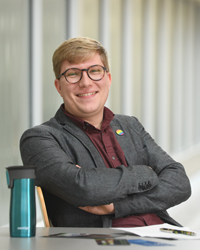 Landon Getz, PhD in Cellular and Molecular Biology
Landon Getz, PhD in Cellular and Molecular Biology
Understanding what makes infectious marine bacteria tick
“Our lab works with a marine microbe called Vibrio parahaemolyticus. Many strains of this microbe live in the environment and are harmless to human beings. However, some strains cause a diarrheal disease in humans called Vibriosis, while others cause fatal infections in shrimp. I am trying to better understand how these and other ocean microbes cause disease in humans, ultimately transforming from harmless environmental organisms to infectious ones. Understanding the underlying biology of these organisms — and the links between their environmental life and their infectious ones — is vital for predicting and preventing future outbreaks.”
 Nicole Doria, PhD in Health
Nicole Doria, PhD in Health
Investigating the role of dating apps in sexualized violence
“In Canada, the high rate of sexualized violence against women is an urgent social issue and a significant human rights problem. Although not a new issue for women, there is reason to believe that the surge in popularity of online dating apps has created a new avenue for sexualized violence. As dating moves online and the number of online dating apps and dating app users in Canada continues to grow, it is critical to examine how sexualized violence is also moving and occurring online. This proposed research is the first of its kind to explore women’s experiences of dating app facilitated sexualized violence across the Maritimes, with the aim of better understanding the extent, nature, and reporting outcomes of dating app facilitated sexualized violence against women.”
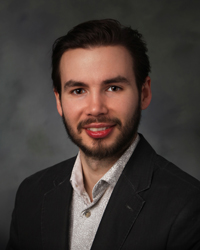 Christopher White, PhD in Mechanical Engineering
Christopher White, PhD in Mechanical Engineering
Forging a new path for the green economy
“One of the biggest problems with renewable energy sources like wind and solar is that the more we use the weaker our electricity grids become, so we need a lot of energy storage to solve this problem. A new area of development in the energy world is the repurposing of used electric vehicle batteries as energy storage systems to strengthen our electricity grids. There are many different battery designs for electric vehicles, but the few existing demonstration projects only use one battery design at a time for the sake of simplicity. The next step is to figure out how to use different battery designs together in a single system. To accomplish this, I am testing many different used electric vehicle batteries in the lab to measure their strengths and weaknesses, which I will eventually use to create a new computer program. The program will act like a brain and use its understanding of the different batteries to automatically control how they work together in an energy storage system to make it as efficient as possible.”
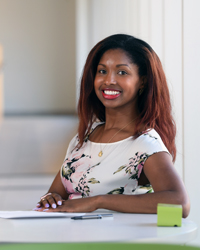 Keisha Jefferies, PhD in Nursing  Â
Keisha Jefferies, PhD in Nursing  Â
Making health care work for African Nova Scotians
“I have several objectives that I would like to accomplish. First, I want to situate the African Nova Scotian community as a health research priority in Nova Scotia. This community is a vital component of Nova Scotia, yet it continues to experience extreme human rights violations and social injustice. Second, I am striving to generate evidence that can be used to inform health care policies and practices, to be more relevant and inclusive of the unique needs of African Nova Scotians. Third, I want to partner with colleagues and allies to fill the gap of race-disaggregated data in Canada. Lastly, as an emerging Black feminist scholar, nurse researcher and community leader, I see my research being crucial in empowering community members, future Black researchers and practitioners.”
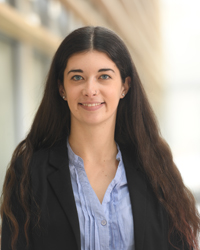 Katherine Marczenko, PhD in Chemistry
Katherine Marczenko, PhD in Chemistry
Using chemistry to replace fossil fuels and toxic metals
“The periodic table can be viewed as a bucket full of Lego pieces. To assemble something useful out of this jumble, one has to first define the shape of each piece and how it connects to the others. The first phase of our research involves discovering new inorganic molecules and studying their shapes and connectivity. The next phase assesses their potential as precursors to new materials and catalysts. The final phase, which can come several years after the first two, involves establishing commercially-relevant properties of these products. In the long term, our research will reveal alternatives to fossil-fuel based or toxic-metal based building blocks for next generation materials and catalysis.”
Banting Fellows
 Dr. Samantha J. Dawson, Psychology
Dr. Samantha J. Dawson, Psychology
Helping couples improve their sexual well-being
“Sexual well-being — which includes things like how often you have sex, feelings of sexual satisfaction, and the level of sexual desire you have for your partner — plays a crucial role in determining the overall quality and satisfaction with one’s romantic relationship. Unfortunately, for many couples, sexual well-being declines over time. I am interested in how changes in positive and negative mood and what people pay attention to during sex, are linked with the changes we see in couples’ sexual wellbeing. I am also interested in using this knowledge to develop new interventions that will help couples to enhance their sexual wellbeing, including times when couples are facing new challenges to their sex lives, such as during the transition to parenthood.
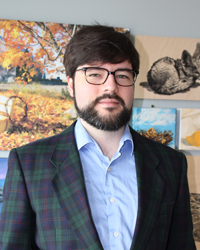 Dr. Trystan Goetze, Philosophy  Â
Dr. Trystan Goetze, Philosophy  Â
Investigating the role of intellectual accountability in a world of fake news and extremism
“I’m hoping that by developing a philosophical theory of intellectual accountability and raising awareness of its proper role in our lives, we can improve political discourse and stop the spread of misinformation. The need for this is particularly urgent, considering that, over the last few years, there have been some high-profile cases where our usual methods of holding people intellectually accountable seem to have broken down. People are increasingly polarized in their political opinions. Racist, misogynist, anti-LGBTQA, anti-Semitic, and Islamophobic extremism are on the rise. Fake news and misleading information have had demonstrable impacts on major electoral decisions. Science denial has hamstringed efforts to deal with climate change before it becomes a global disaster. By applying the theory I’m developing to these kinds of cases, I’m aiming to have an impact on how we respond to these challenges.”

